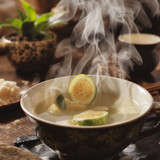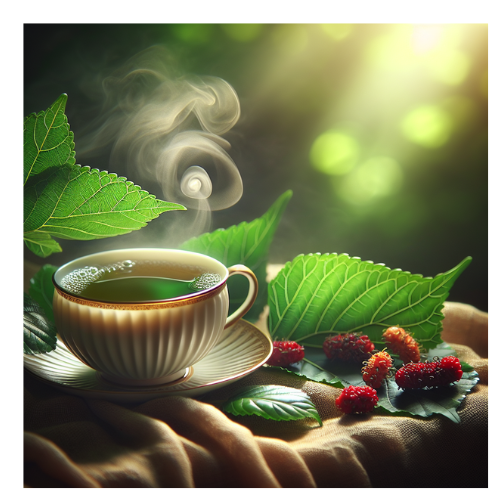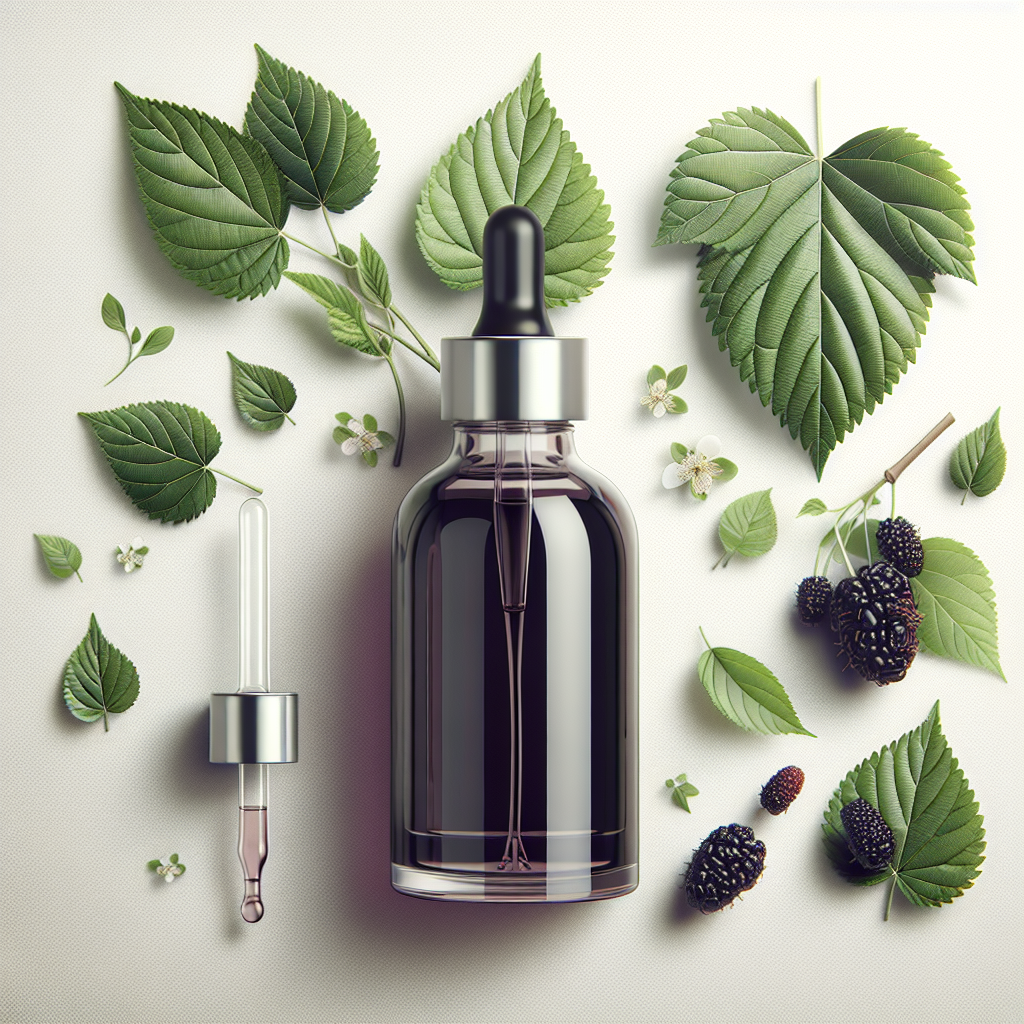

Starwest Botanicals
Organic White Tea Bags
White Tea Bags vs. Green Tea: Why They’re Different White tea and green tea come from the same plant—Camellia sinensis—but they’re made differently. That difference in processing is why white tea...
Discover Sang Ye (Mulberry Leaf) in Traditional Chinese Medicine. Learn its health benefits, TCM theory, historical uses, PubMed research, and how to prepare it. DSHEA-compliant, lab-tested, GMP certified.
 Sang Ye (桑叶, Mulberry Leaf) is one of Traditional Chinese Medicine’s most trusted herbs for clearing heat, soothing the lungs, and balancing seasonal health. Used for centuries to support respiratory comfort, eye health, and liver balance, Sang Ye continues to be researched today for its antioxidant and blood sugar–supportive properties. Whether brewed as a tea, combined in classical formulas, or infused into modern blends, Sang Ye is a versatile herb bridging ancient wisdom and modern science.
Sang Ye (桑叶, Mulberry Leaf) is one of Traditional Chinese Medicine’s most trusted herbs for clearing heat, soothing the lungs, and balancing seasonal health. Used for centuries to support respiratory comfort, eye health, and liver balance, Sang Ye continues to be researched today for its antioxidant and blood sugar–supportive properties. Whether brewed as a tea, combined in classical formulas, or infused into modern blends, Sang Ye is a versatile herb bridging ancient wisdom and modern science.
| Category | Details |
|---|---|
| Pinyin Name | Sang Ye (桑叶) |
| English Name | Mulberry Leaf |
| Botanical Name | Morus alba (White Mulberry) |
| TCM Category | Cool, Acrid Herbs That Release the Exterior |
| Taste/Nature | Bitter, Sweet / Cold |
| Meridians | Lung, Liver |
| Key Actions | Clears Lung heat, moistens dryness, cools blood, clears the eyes |
| Forms Available | Cut & sifted leaf, powdered leaf, concentrated extract, teapills |
| Quality | Lab-tested, GMP certified, wildcrafted options available at 1st Chinese Herbs |
In TCM theory, Sang Ye belongs to the category of Cool, Acrid Herbs That Release the Exterior. It:
Clears Lung heat – traditionally used for dry cough, sore throat, and fever with thirst.
Moistens dryness – especially in autumn when dryness injures the Lung.
Cools the blood and stops bleeding – occasionally used for mild blood heat patterns.
Benefits the eyes – helpful for red, painful eyes caused by Liver heat or wind-heat.
Taste & Nature: Bitter, sweet, and cold.
Meridians Entered: Lung, Liver.
Sang Ye appears in the Shen Nong Ben Cao Jing (Divine Farmer’s Materia Medica, ~200 CE) as a superior herb for calming wind-heat. In Chinese folklore, mulberry trees were sacred to silk production, and their leaves not only nourished silkworms but also the human body when brewed as a gentle tea. Farmers drank Sang Ye infusions during harvest season to clear summer heat.
Recent studies highlight Sang Ye’s bioactive compounds:
Blood sugar support: Mulberry leaf extract may help regulate glucose metabolism and reduce postprandial blood sugar spikes (PubMed PMID: 24277949).
Antioxidant activity: Rich in flavonoids and polyphenols, Sang Ye supports oxidative balance and cellular health (PubMed PMID: 28093305).
Liver protection: Mulberry leaf demonstrates hepatoprotective effects in animal models (PubMed PMID: 30501201).
Respiratory comfort: Traditional uses for soothing coughs and sore throats have been supported by phytochemical analyses (PubMed PMID: 31976562).
Disclaimer: These statements are for educational purposes only and not evaluated by the FDA. Not intended to diagnose, treat, cure, or prevent any disease.
 Preparation & How to Use
Preparation & How to UseTea/Infusion: 3–9 grams dried Sang Ye steeped in hot water, often combined with Chrysanthemum (Ju Hua) for eye support.
Powder: 1–2 grams mixed into warm water or smoothies.
Decoction: Simmer with other herbs in classical TCM formulas.
Teapills/Extracts: Convenient for daily use, following product instructions.
Ingredients:
5 g dried Sang Ye
3 g Ju Hua (Chrysanthemum)
2 slices fresh ginger
Honey to taste
Directions:
Place herbs in a teapot.
Add 2 cups boiling water.
Steep 10 minutes.
Strain, sweeten with honey, and enjoy warm.
Traditionally taken at the first signs of seasonal discomfort (dry cough, sore throat, eye redness).
May be used as a gentle daily tea during autumn.
Cautions: Avoid in cases of cold cough or diarrhea due to Sang Ye’s cooling nature.
Always consult a licensed healthcare provider if pregnant, nursing, or taking medication.
| Herb | Key Use | Difference from Sang Ye |
|---|---|---|
| Ju Hua | Clears wind-heat, especially for eyes | Ju Hua is more flower-focused, Sang Ye works stronger on the Lungs. |
| Bo He | Cools and releases exterior wind-heat | Bo He is more dispersing, Sang Ye more moistening. |
| Niu Bang Zi | Benefits throat, resolves toxicity | Niu Bang Zi is stronger for sore throat, Sang Ye gentler for dryness. |
Q: Can I drink mulberry leaf tea daily?
A: Yes, Sang Ye tea is generally considered safe in moderate amounts, especially in autumn.
Q: Is Sang Ye good for blood sugar?
A: Modern research suggests mulberry leaf may support healthy glucose metabolism, though it is not a substitute for medical care.
Q: How does Sang Ye compare to mulberry fruit (Sang Shen)?
A: Sang Ye is cooling and clears heat, while Sang Shen is nourishing and moistening for Yin and blood.
Find high-quality Sang Ye (Mulberry Leaf) — cut leaf, powdered, and teapills — lab-tested, GMP certified, and geo-authentic at 1st Chinese Herbs. See all forms below
Sang Ye, or Mulberry Leaf, has earned its place in Traditional Chinese Medicine for centuries as a cooling, balancing herb that supports the Lungs, Liver, and overall wellness. Modern research now confirms what ancient practitioners long observed — that mulberry leaf is rich in antioxidants, flavonoids, and unique compounds that may help maintain healthy blood sugar, soothe seasonal discomforts, and promote eye health.
Whether enjoyed as a daily tea, included in classic herbal formulas, or explored for its modern scientific potential, Sang Ye remains a versatile and time-honored herb. As with all botanicals, it is best used as part of a balanced wellness routine. Consult with a qualified healthcare professional before adding Sang Ye to your regimen, especially if you are pregnant, nursing, or taking medications.
At 1st Chinese Herbs, we’re proud to provide high-quality, lab-tested Sang Ye that’s GMP certified and geo-authentic — giving you confidence in both tradition and modern quality standards.
Wildcrafted options available
Third-party lab tested
GMP certified production
Geo-authentic sourcing
Since 1994: 31 years of herbal knowledge and consumer trust